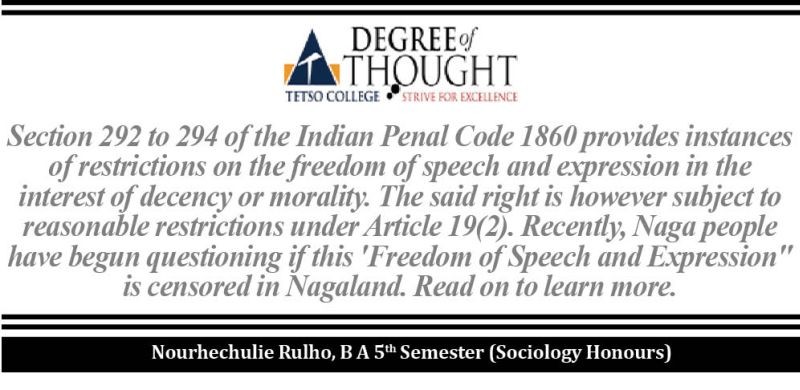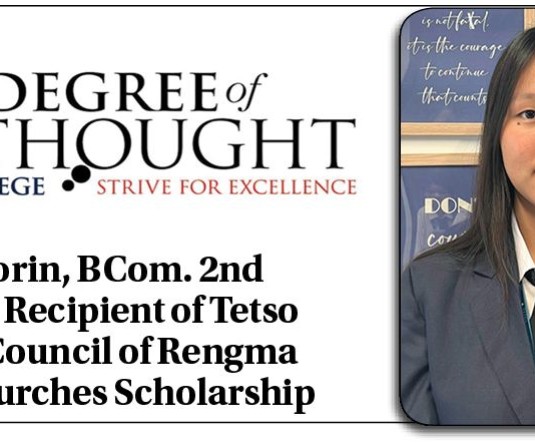
“Though there is a freedom of speech, freedom is never absolute because the makers of the Constitution have imposed certain restrictions upon it. Particularly when such freedom of speech is sought to be abused and it has the effect of scandalising the institution as a whole and the persons who are part of the said institution and cannot defend themselves publicly, the same cannot be permitted in law”. ~ The remarks were made by the bench comprising Justices Arun Mishra, B R Gavai and Krishna Murari which imposed a “nominal fine” of Re 1 on activist lawyer Prashant Bhushan in a contempt case in which he was convicted on August 14 for his two derogatory tweets against the judiciary.
India as a democratic country has granted its citizens with Freedom of Speech and Expression under Article 19 (1) (a) in the Indian Constitution. This freedom enables the citizens to think and express their ideas and beliefs freely, without being controlled or interfered by an external force. This freedom has enabled people from every corner of the country to speak out the truth and also express their grievances to the government and higher authorities. This freedom is very important for a healthy democracy.
Recently, Naga people have begun questioning if this 'Freedom of Speech and Expression" is censored in Nagaland. Nagaland, like any other states of India, guarantees this freedom to its citizens. Social media platforms mainly Facebook, Twitter and WhatsApp have been widely used by many Naga people as a platform to discuss and express their views and opinions on topics related to administration, development, police, health, education, etc. The positive outcomes of these discussions in Nagaland over the past includes the installation of BSL-3 lab in Kohima, reduction of backdoor appointments, and also the practice of proxy teachers has been reduced drastically. This freedom has enabled many young Nagas to express themselves openly and influence the decisions of the government. Freedom of Speech and Expression, however, has taken a different turn in the context of Nagaland in recent times. With the arrest of Pankaj Gupta on the charge of cybercrime, the general public has begun to question the government and higher authorities on this "Freedom". Various summoning letters had been issued to different individuals who while practicing their freedom of speech had criticized and accused the Government, Village Organizations or Unions on different grounds. Some such individuals are Akavi N Zhimomi Naga, Khrolo Baba, Meren Pongen Naga, and some others (known by their Facebook usernames). All these individuals were summoned before the respective offices to explain their ground of stand for the accusations. If someone is being arrested or warned for practicing their 'Freedom', is it really a democratic state? What will happen to democracy if everybody is threatened for speaking up the truth, for questioning the government or higher authorities?
However, one important question arises, i.e. is freedom of Speech and Expression absolute? Well, the answer is a big 'No'. The Constitution of India while giving Rights has set certain limitations to these Rights and also violation of this code will result into a punishable offense. Two such limitations set by the Constitution for Freedom of speech and expression are:
i) Defamation: The Constitution prohibits the use of any freedom which affects the reputation or status of another person. If a person loses his money today, he might be able to earn it back tomorrow. But, when a person loses his reputation, it takes forever to earn it back. One person cannot use his freedom of speech to defame someone's reputation.
ii) Decency or Morality: Section 292 to 294 of Indian Penal Code (IPC) puts forward restrictions on the use of offensive and repulsive words in public places. Any word used to affect the morality of a community or organization is considered unlawful. A person cannot use his freedom of speech and use offensive words against anyone or a community/group.
Law and order is maintained by the police and the judiciary and if anyone is found guilty, the court punishes him/her accordingly. Laws are there so that there can be equality, peace and harmony, safety etc. and it is our sole responsibility to abide by these laws. One must never exercise his/her right while violating others' rights. It is true that the Constitution has provided us with certain rights and freedoms but we must not forget that there are always limitations and all the freedoms are not absolute.
Criticism, constructive in nature and not divisive, plays a vital role in a healthy democracy. Every great work by great scholars, philosophers, artists etc. has been criticized in one way or the other. Constructive criticism opens the door for new perspectives, for correcting what has been wronged and so on. However, it is not very common among our Naga leaders, be it Political, Social, Economic or any other sectors to accept and encourage criticism. Leaders are usually found becoming enraged when criticized or accused of something or the other. "If liberty means anything at all, it means the right to tell people what they do not want to hear" - George Orwell. Leaders should be dynamic, who welcome new ideas, and accept criticisms.
In a democracy, people elect their representatives who are supposed to listen to the people and work in favor of them, but what we witness today is somehow contrary to what ought to be. However, criticism of different kinds also exists; it should not be malignant or inciteful meant to merely generate anger or hatred but with a solution to improve the existing conditions.
One must not think that our freedom of speech and expression is in danger or anything as such. When we use it according to the law, it is still one of our greatest weapons. However, as an educated and sensible person, before we post or share anything in mass media, we must question ourselves about its validity and have facts about it because nothing is true before the court until it is proven so.
One latest example can be taken from Hema Choudhary. She was only practicing her freedom of speech; however, she violated the law by using offensive words against the Naga community. So, do not be the next person to be arrested by the police or summoned by any organization.
Do not stop yourself from practicing your freedom of speech, but be wise enough to understand the laws and also the consequences. The time has come for our Naga people to learn about the Laws of our country because “ignorance of law” is no excuse (Ignorantia juris non excusat) and ignorance of law excuses no one ( legis neminem excusat (ignorance of law excuses no one).
You can’t defend your actions by arguing you didn’t know they were illegal, even if you honestly did not realize you were breaking the law. Also, eradicating ignorance of law at the grassroots level will be extremely fruitful for the overall growth and advancement of the country and in this regard Government and Education Institutions like Schools, Colleges, Universities, also civil society organizations, Church organizations should take initiative. Let us not forget that Law abiding citizen is an ideal citizen. Law abiding society is truly an ideal society. Let us not remain ignorant about our Rights and let us not shy away from performing our lawful duties and responsibilities towards the nation.
Degree of Thought is a weekly community column initiated by Tetso College in partnership with The Morung Express. Degree of Thought will delve into the social, cultural, political and educational issues around us. The views expressed here do not reflect the opinion of the institution. Tetso College is a NAAC Accredited UGC recognised Commerce and Arts College. The editors are Dr Hewasa Lorin, Dr Aniruddha Babar, Nisha Dahiya and Meren. For feedback or comments please email: dot@tetsocollege.org






